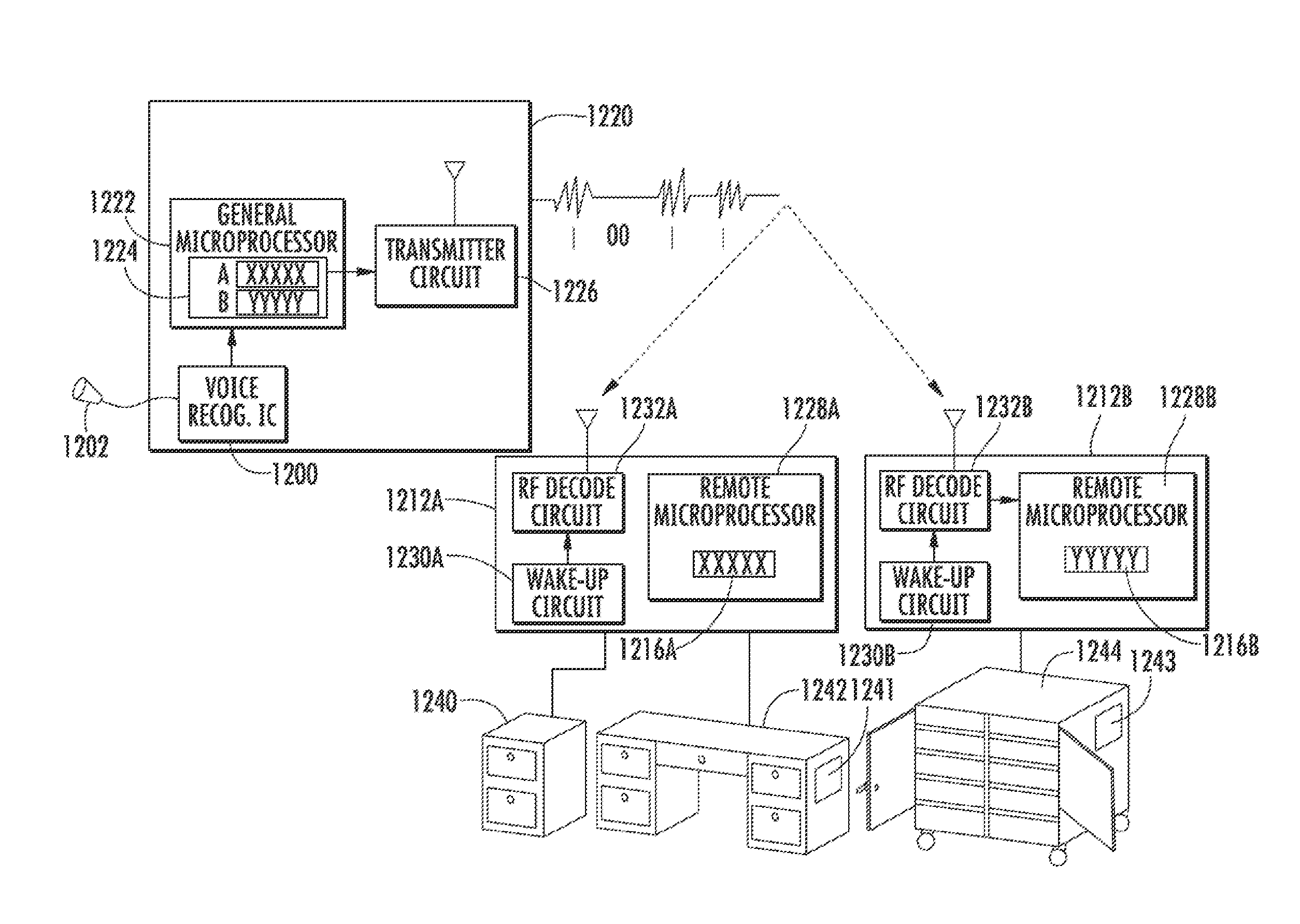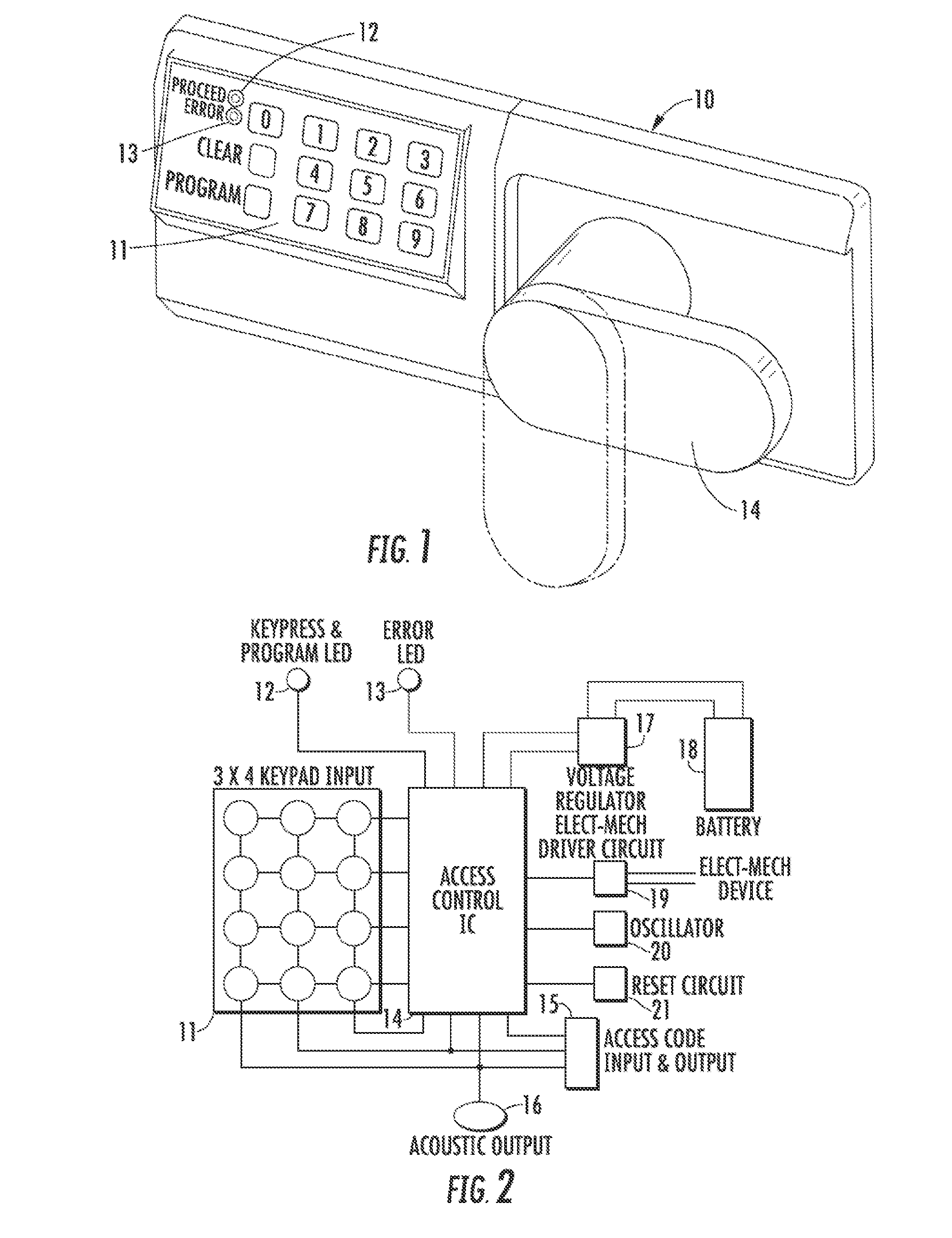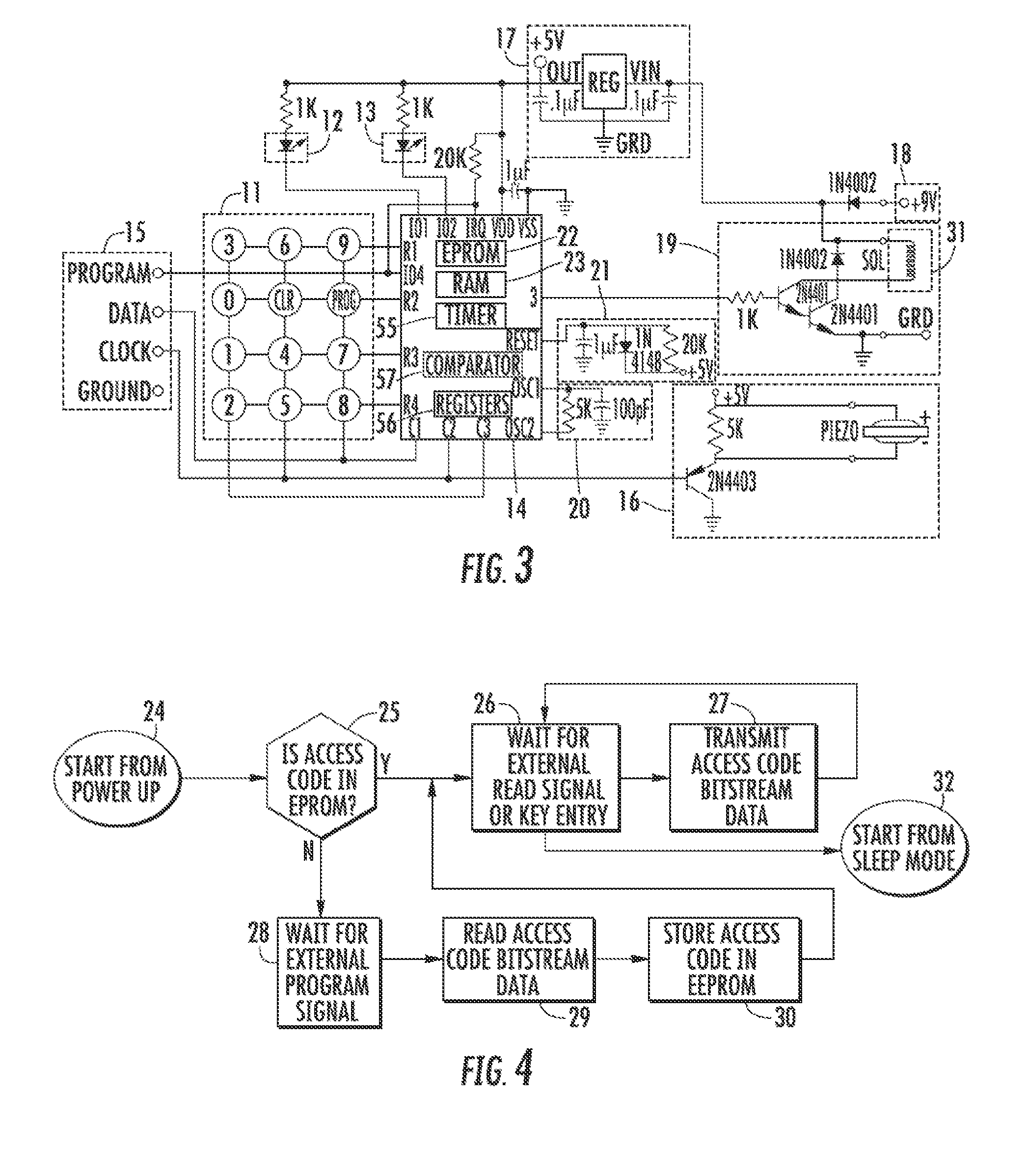One area of problems concerns the manufacture of the devices, including the difficulty in
programming the non-
volatile memory, such as the
EPROM, for storing the access code and other useful information for the operation of the device.
EPROMs, which usually require parallel
programming, interrupt the manufacturing process in that they
restrict when the manufacturer can program the device.
However, with parallel EPROMs, burning in the code after the device has manufactured is difficult.
After the device is soldered together, the manufacturer must contend with
integrated circuit pin clips and must worry about interference with other circuitry on the manufactured device.
Further, manufacturing, with known
electronic access control devices, requires many pin connections which increase manufacturing cost.
When the device contains a significant number of pin connections, the reliability of the device decreases.
However, with parallel EPROMs, serial access is not available.
One common problem associated with previous electronic locks is their potential
vulnerability to tampering.
This arrangement is vulnerable to tampering because if the
control circuit is somehow broken in or removed, one can open the lock by “hot-wiring” the control lines for activating the lock-opening mechanism.
Another technically challenging problem is related to the need to provide electrical energy to power the operation of the electronic
access control device.
A battery, however, has a rather limited amount of electrical energy stored therein.
The operation of the low-battery detection circuit, however, also consumes electrical energy and contributes to the draining of the battery.
Although electronic keys are a convenient feature, they have their associated problems.
One problem is related to the unauthorized use of the keys.
There is a danger that such a
master key may be used for unauthorized opening of other safes in the hotel.
Another problem associated with the use of an electronic key or a
wireless access code
transmitter is that the key or the
transmitter may be lost easily, or the user may simply forget to bring the key or
transmitter.
This problem is especially serious if the electronic
access control device does not provide other means, such as a keypad, for entering the access code.
One significant problem with conventional vending machines is the difficulties in managing the distribution and usage of the keys to ensure the security of the locks on the vending machines.
The process of collecting money from the vending machines scattered at different places is a very manpower-intensive operation that requires many employees to go into the field with numerous mechanical keys for operating the locks on the vending machines.
It requires a considerable amount of attention and efforts to manage and track the distribution of the keys to the field workers to keep the keys secure.
Moreover, the mechanical keys and lock cores of vending machines are a point of
attack for vandals.
The keys can be lost or copied easily, and the stolen or copied keys may then be used by an unauthorized person to access the machines, and it is difficult to discover such misuses and security breaches.
Also, a skilled vandal can easily pick or
drill-out the lock core tumblers and measure the key cuts of the lock core tumblers to re-produce a like key and compromise the security.
In the event a security breach is identified, the mechanical lock cores of the affected vending machines typically have to be manually replaced, which is a time-consuming and very costly process.
Furthermore, mechanical keys and locks are devices that cannot be partially limited in operation they operate indefinitely if in use.
Also, they do not have the ability to
record access operation attempts of their operation.
 Login to View More
Login to View More  Login to View More
Login to View More 


